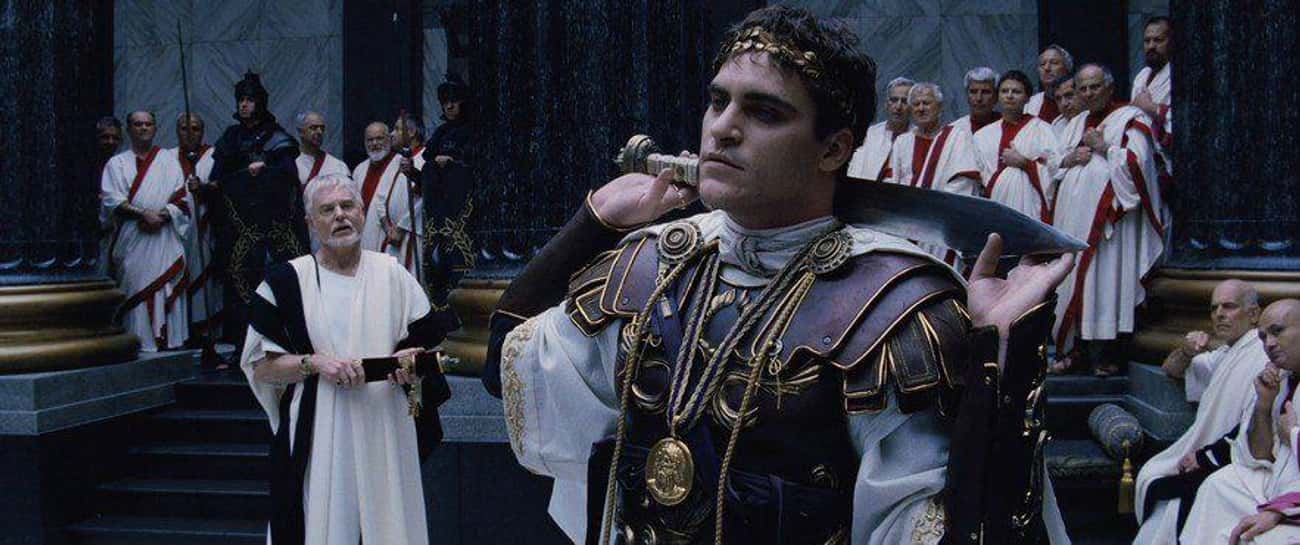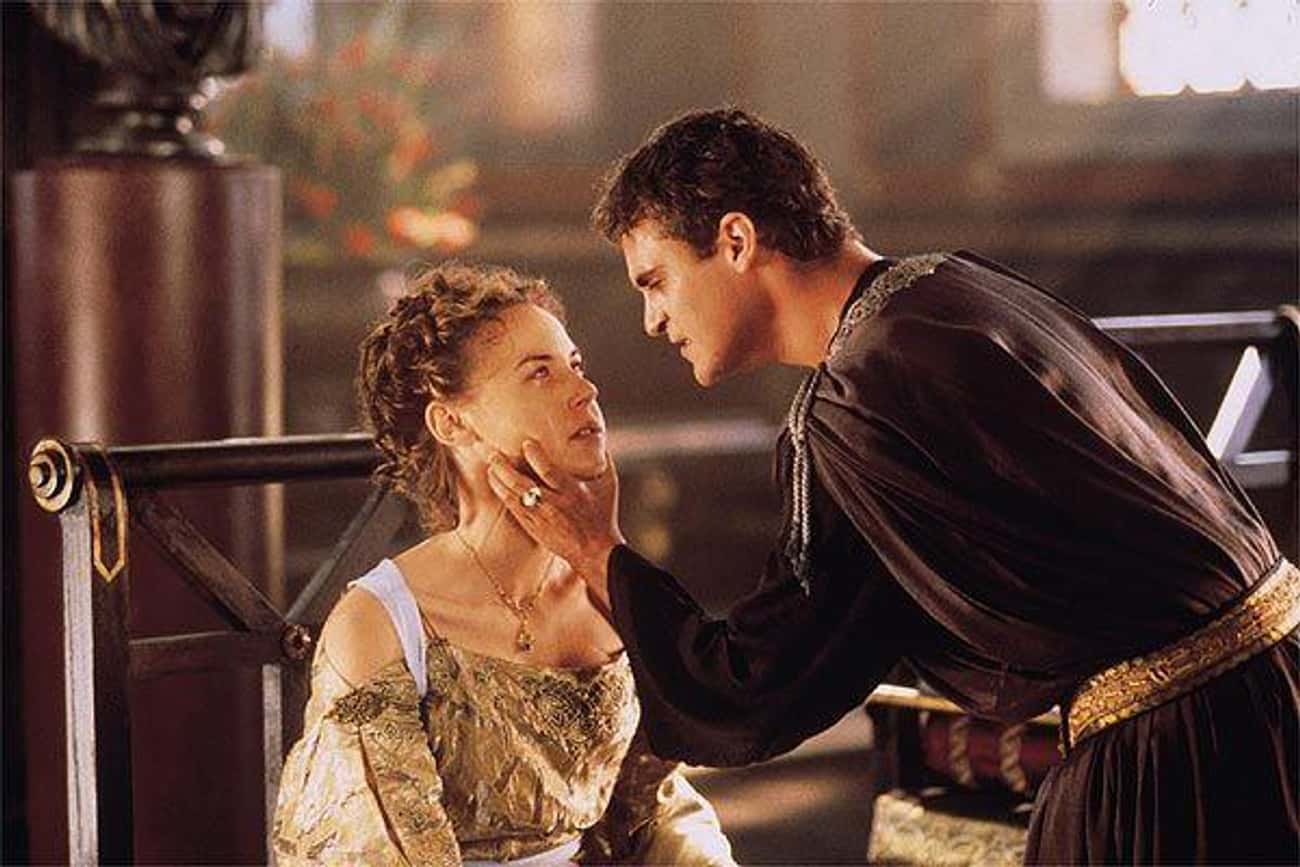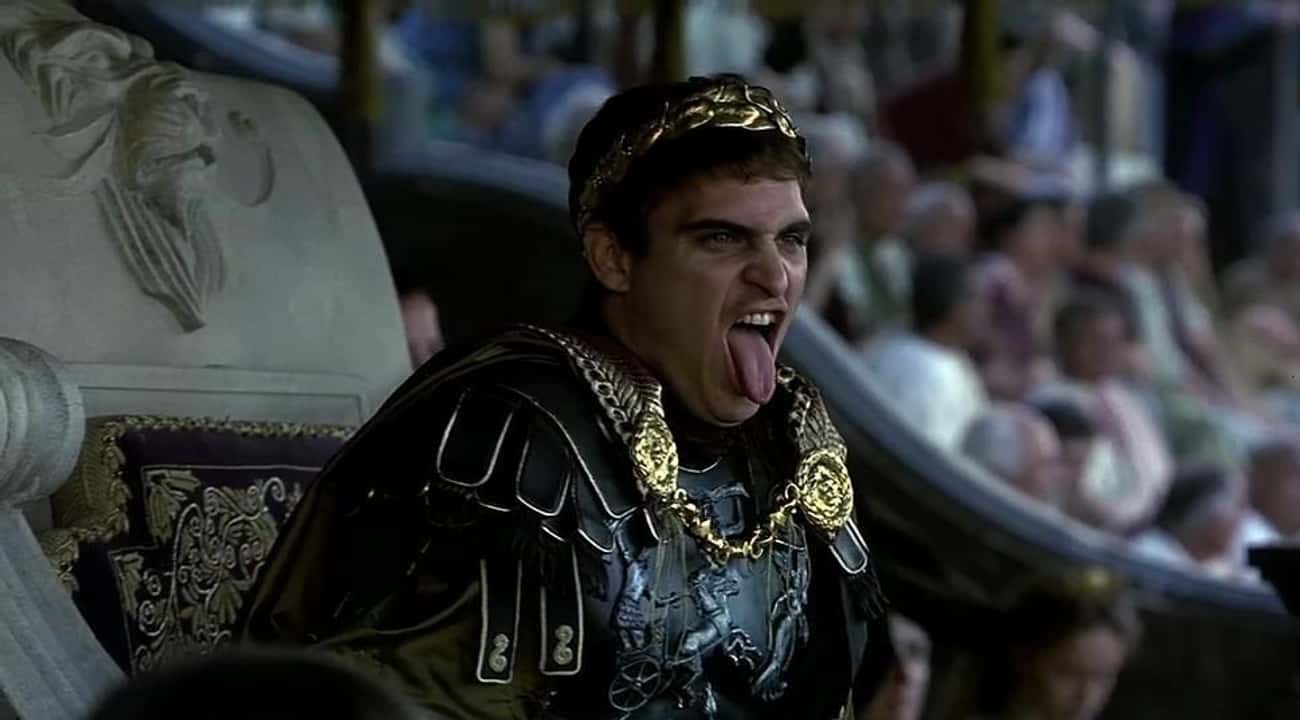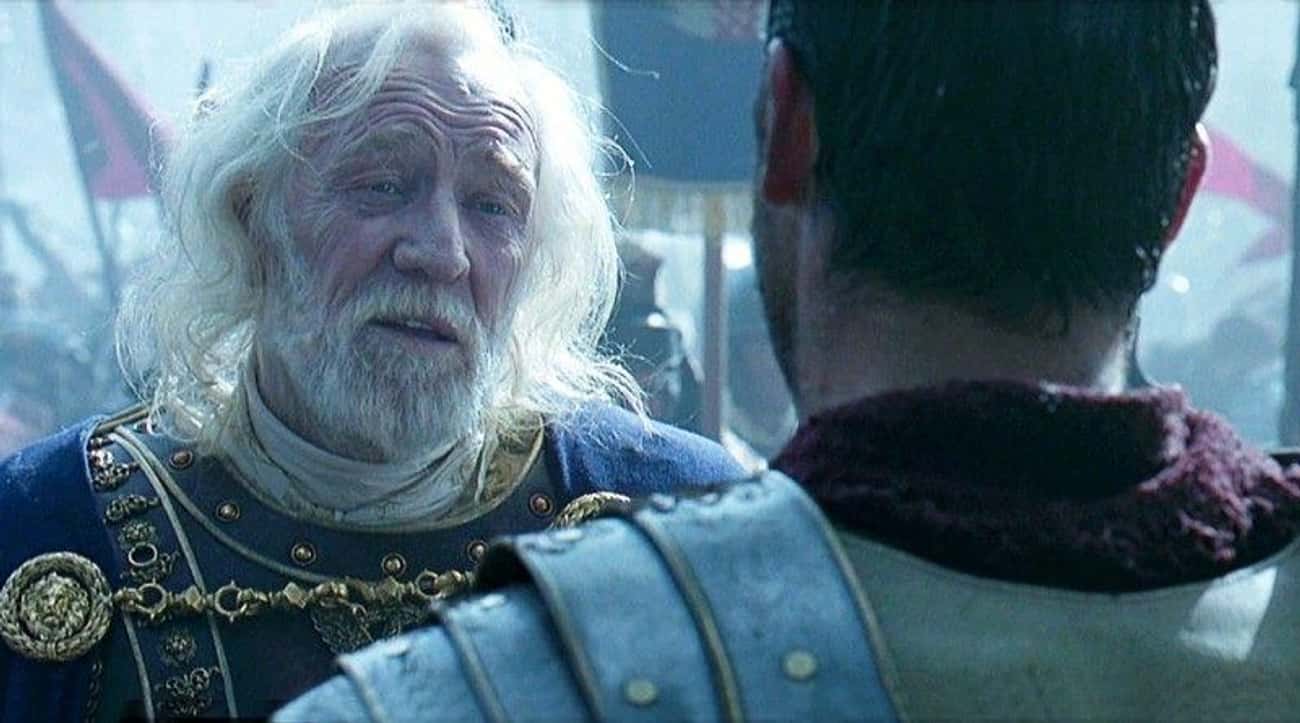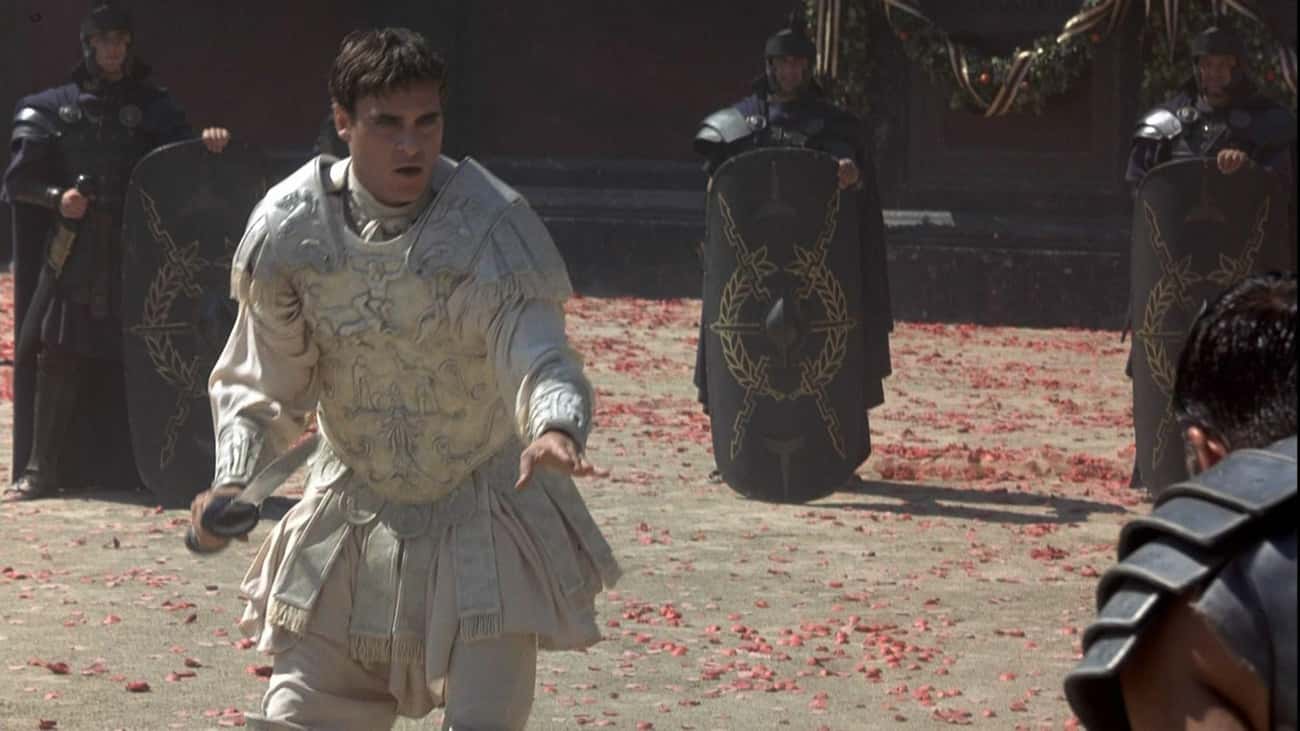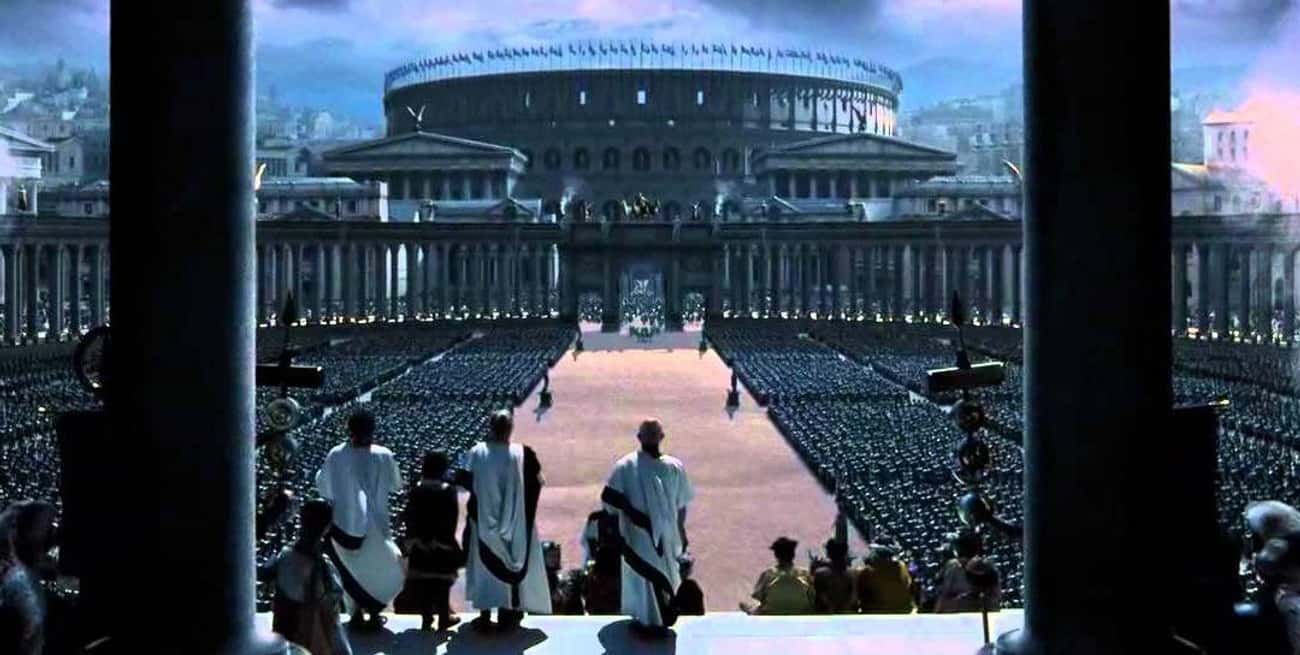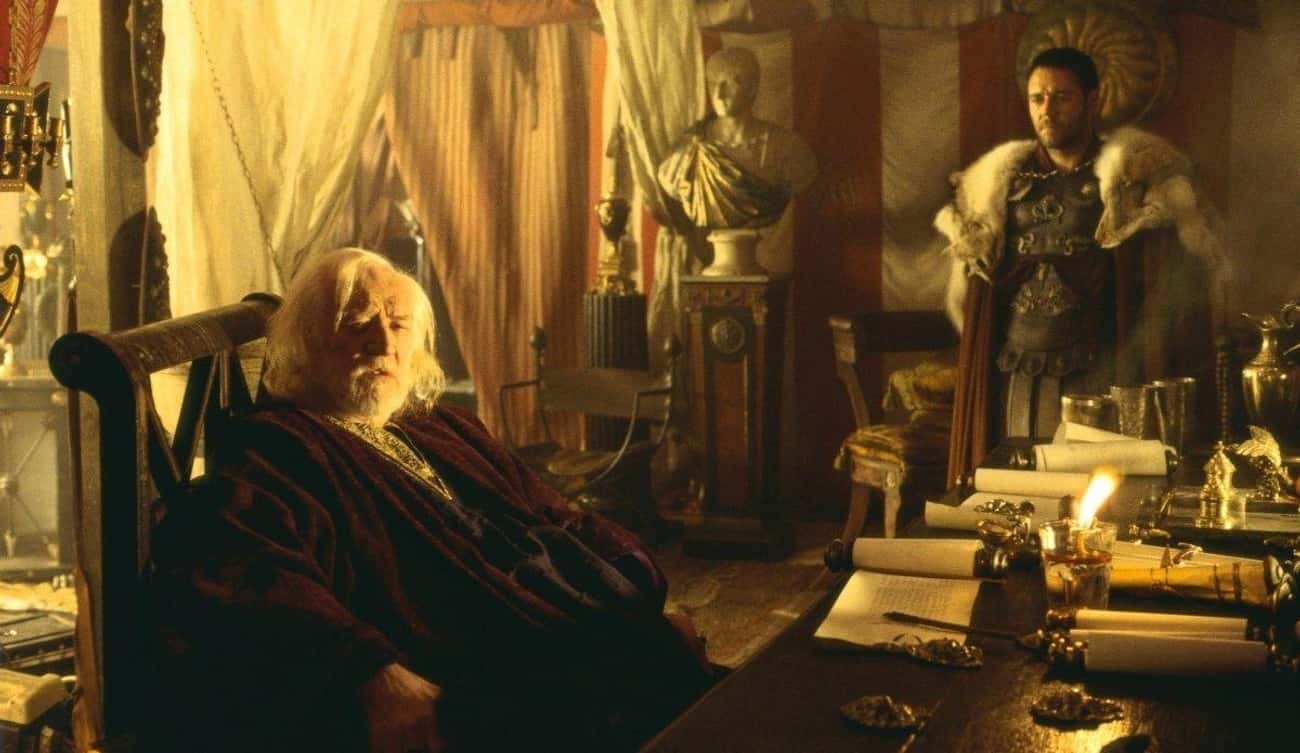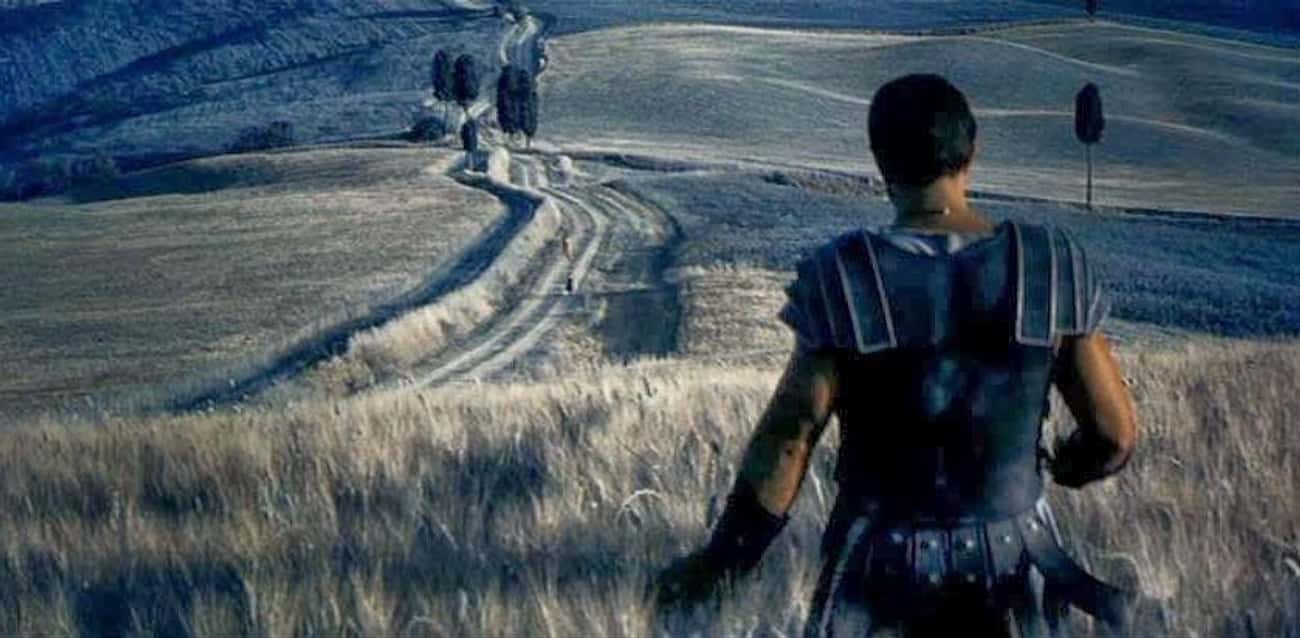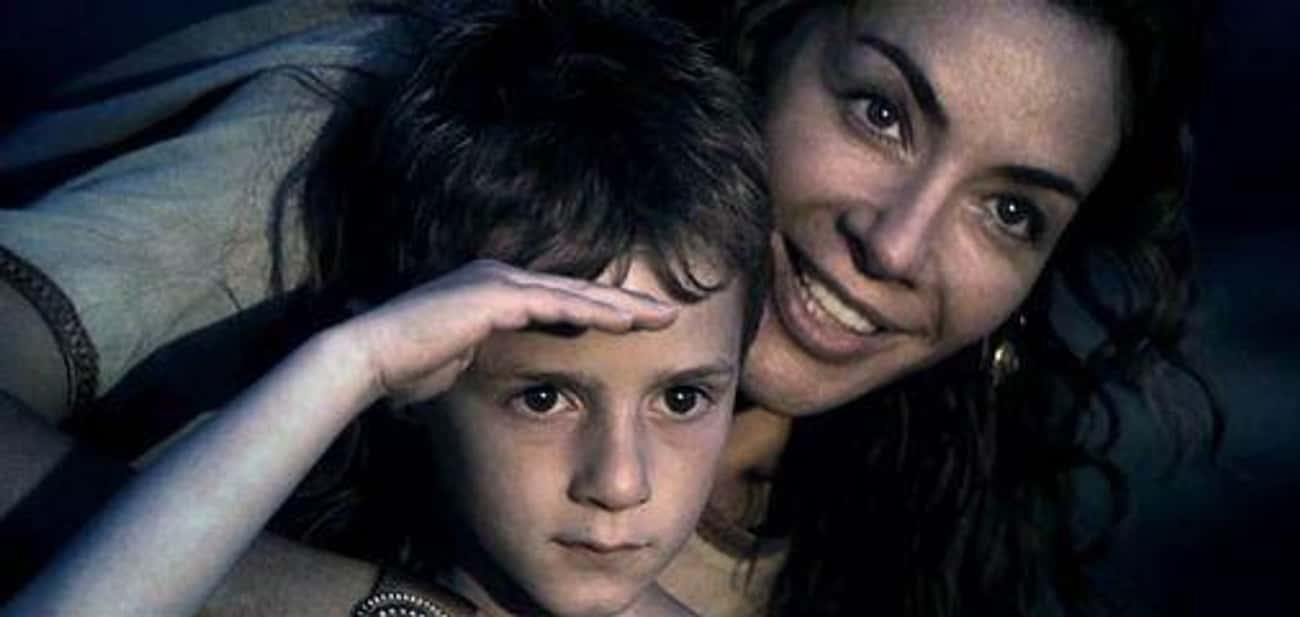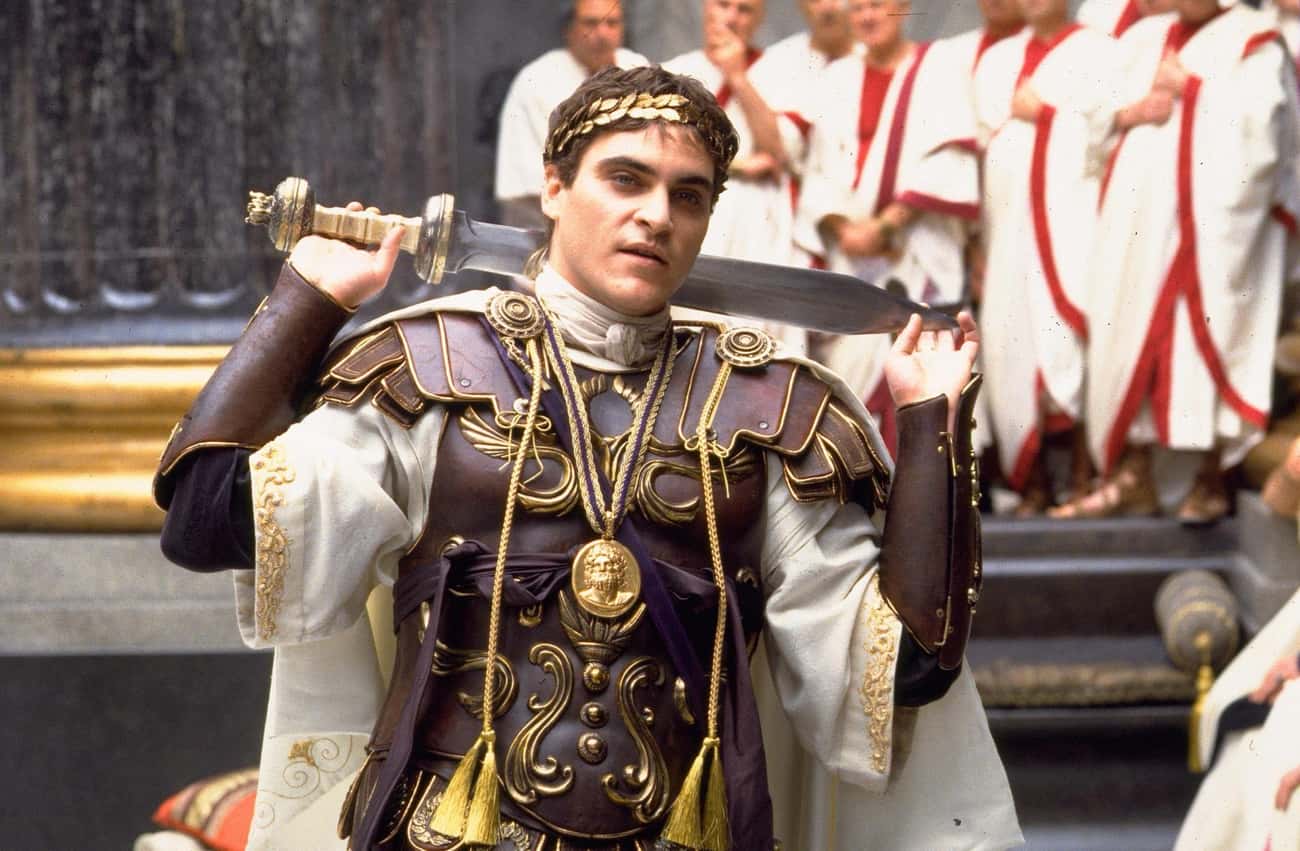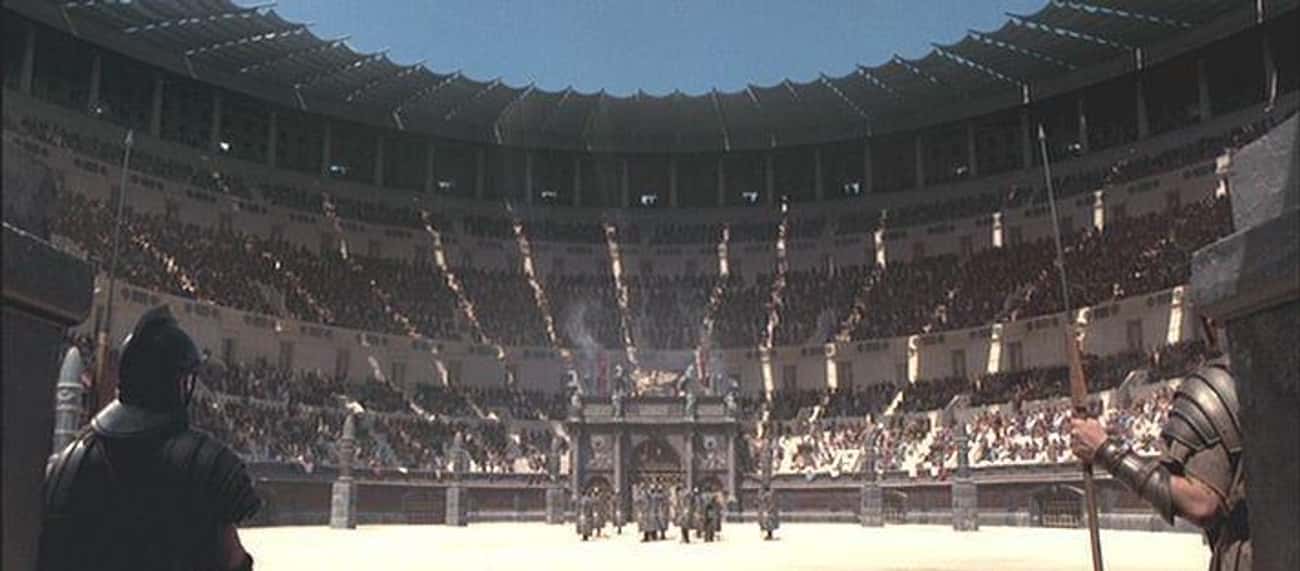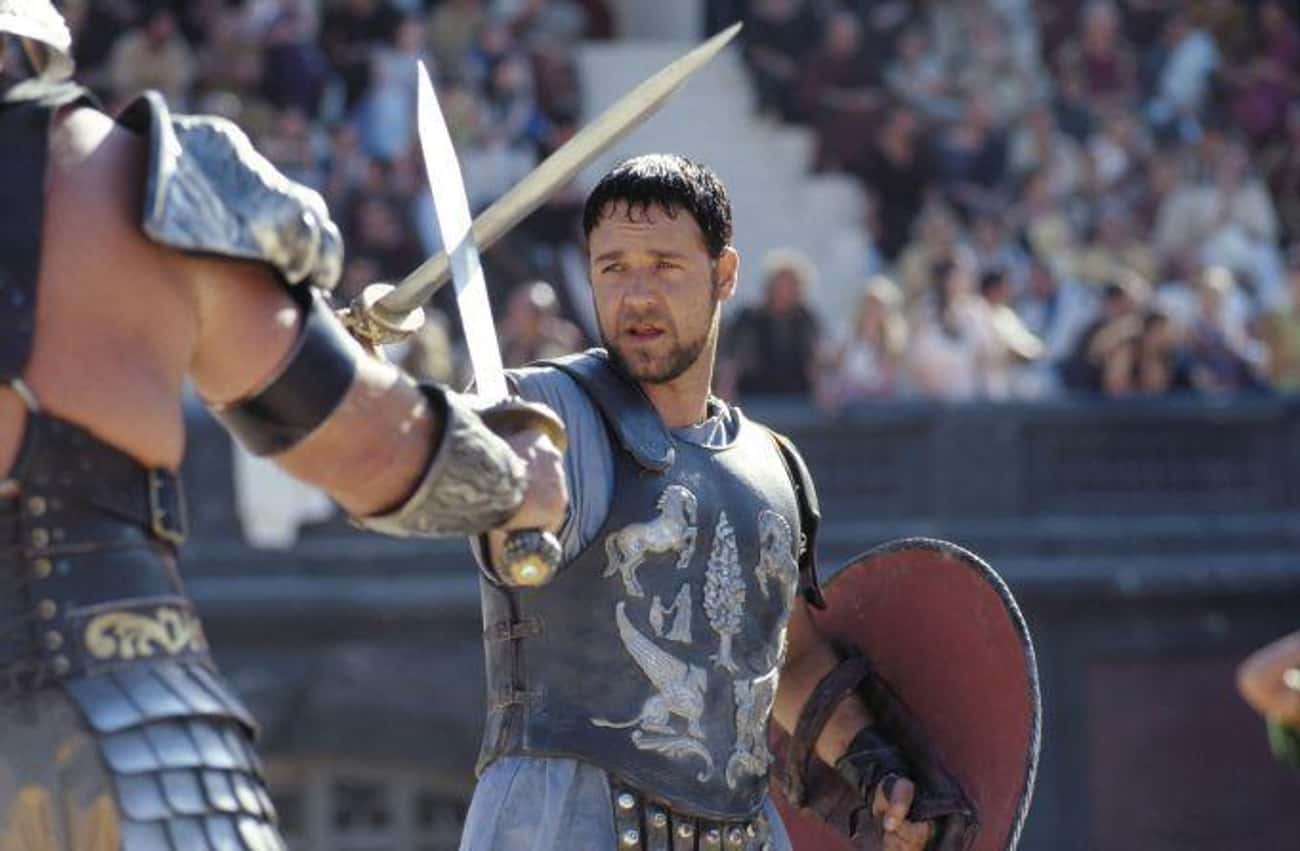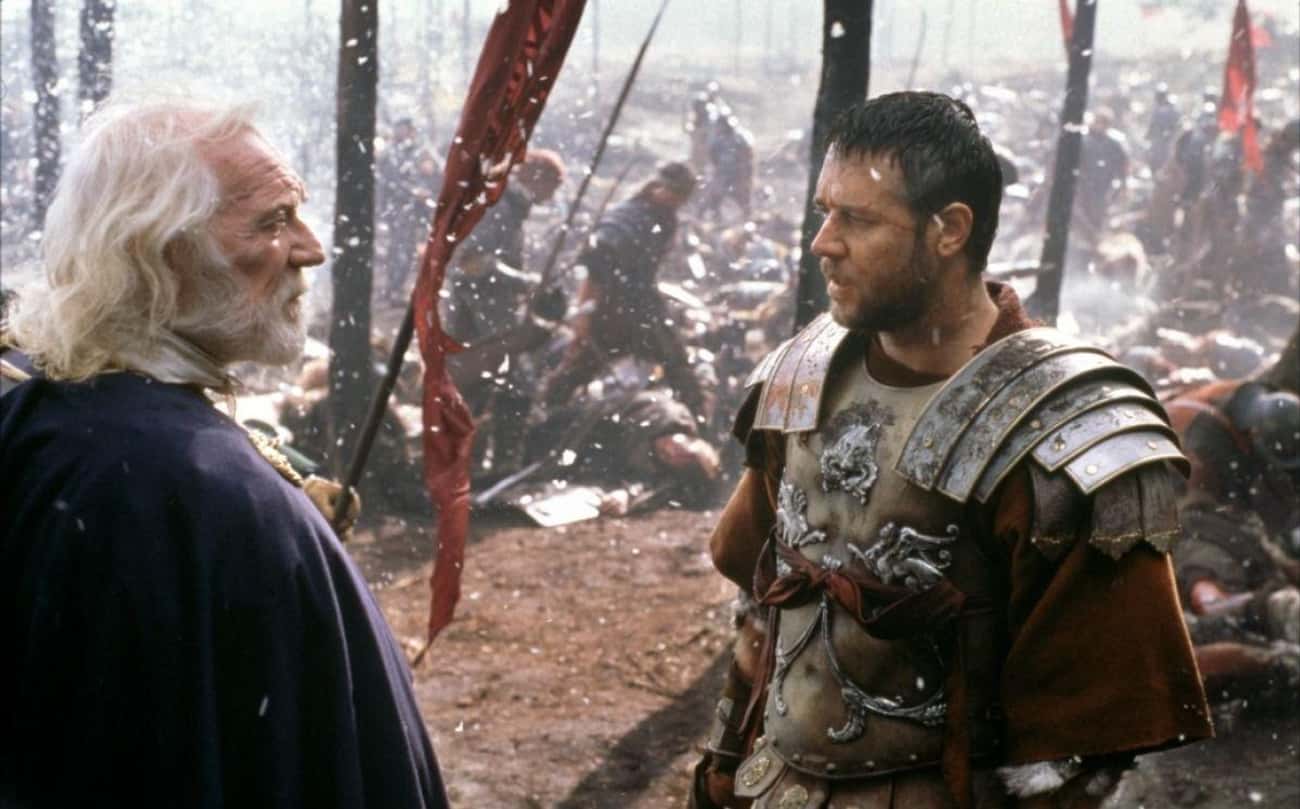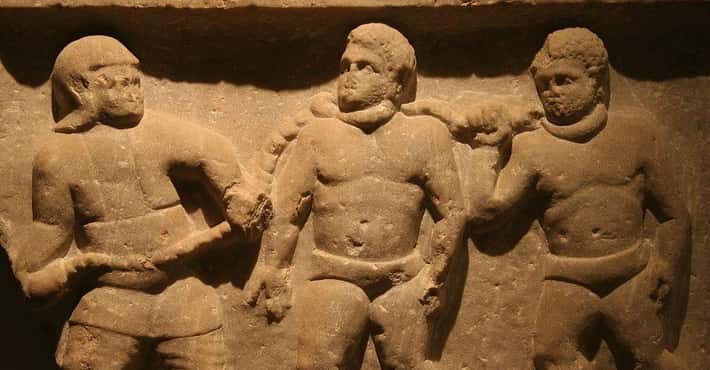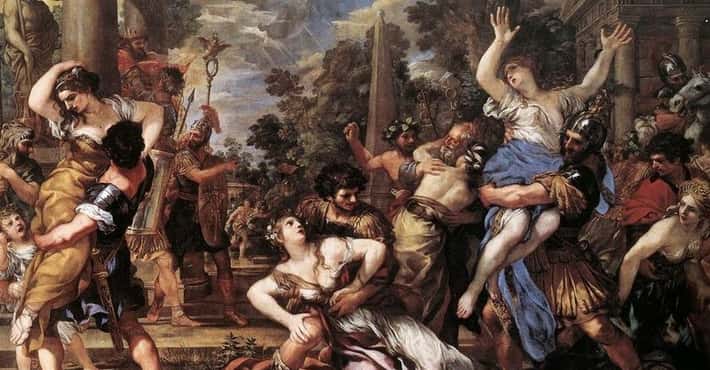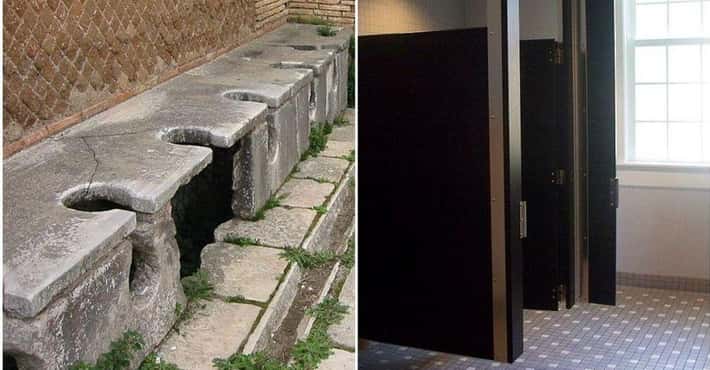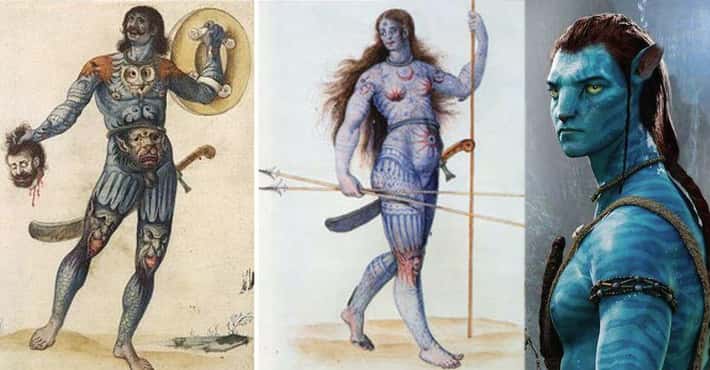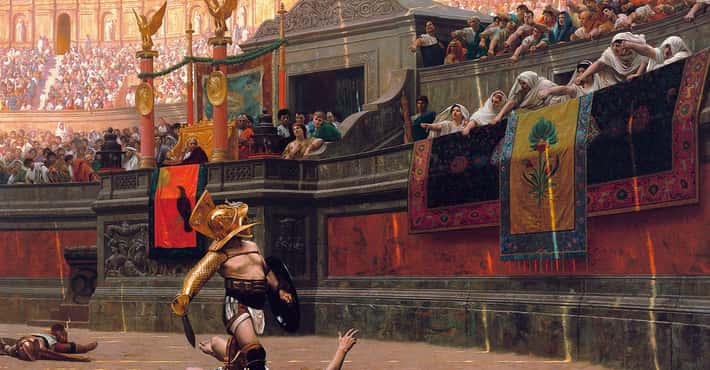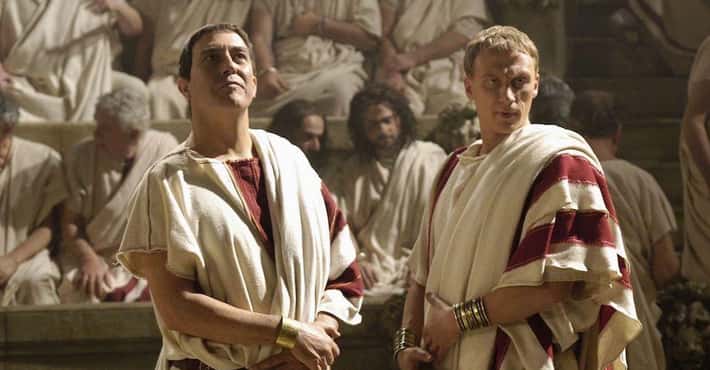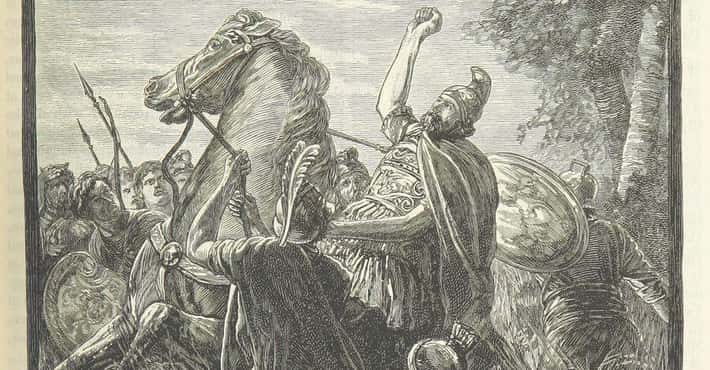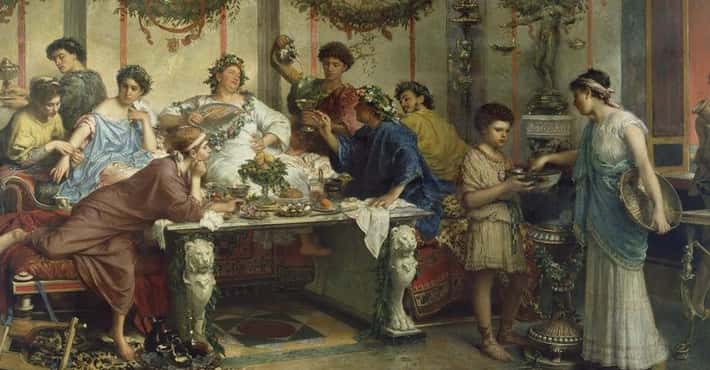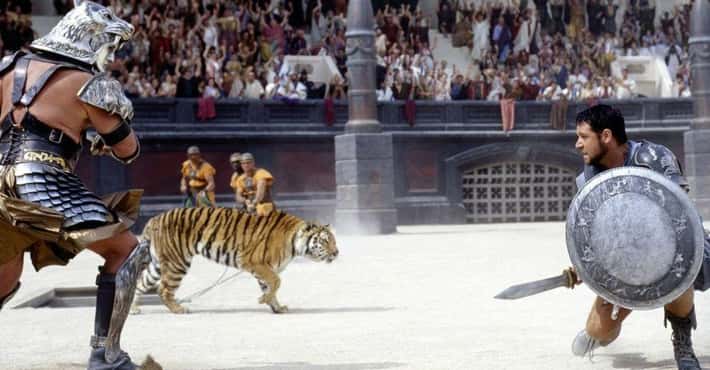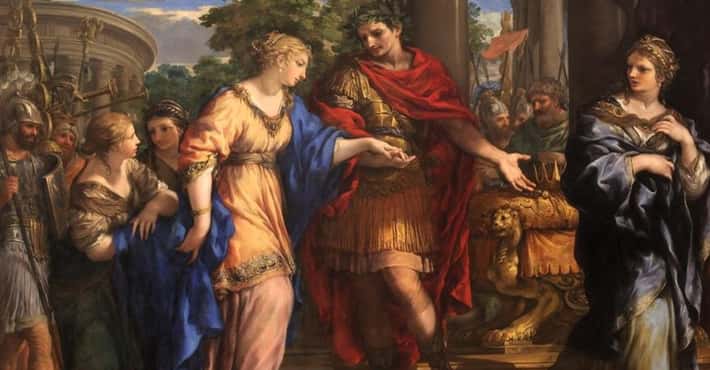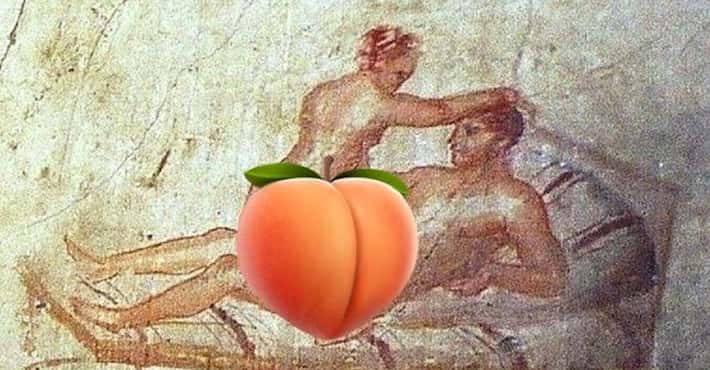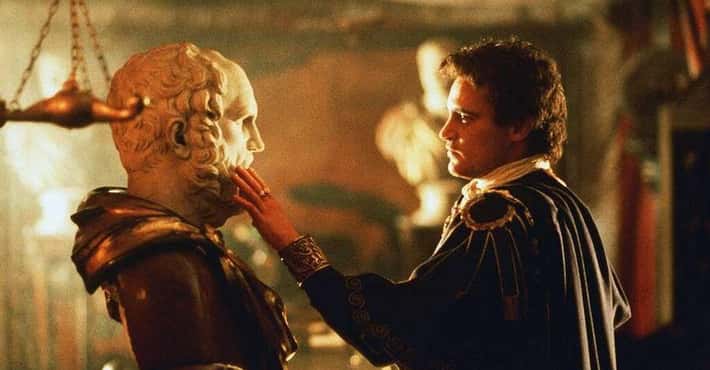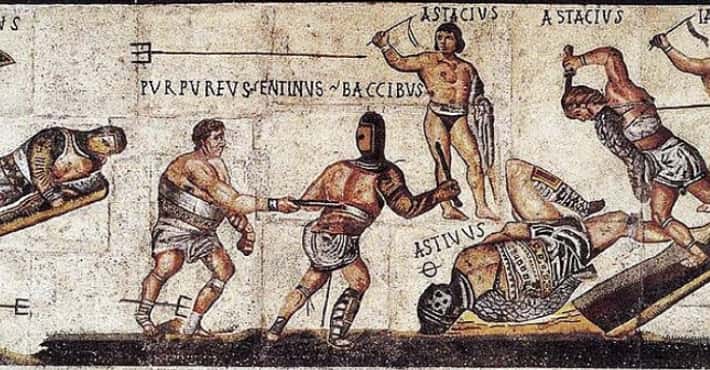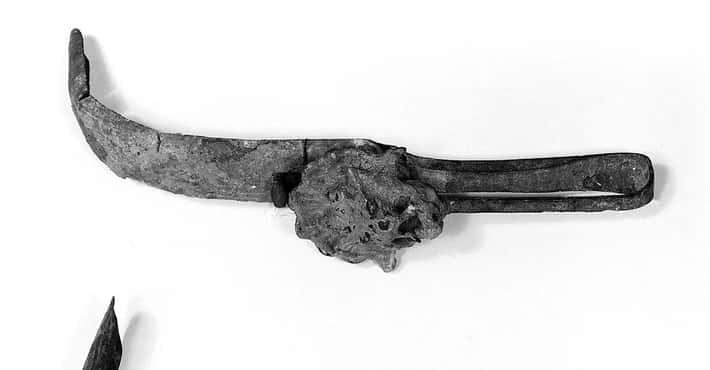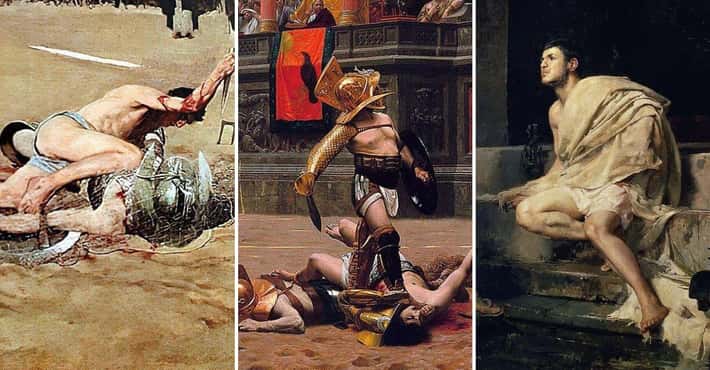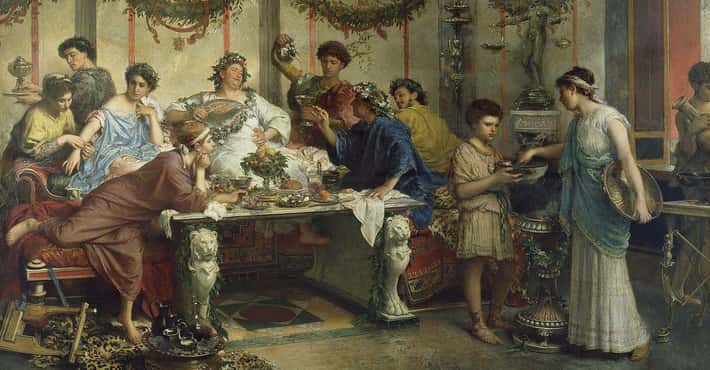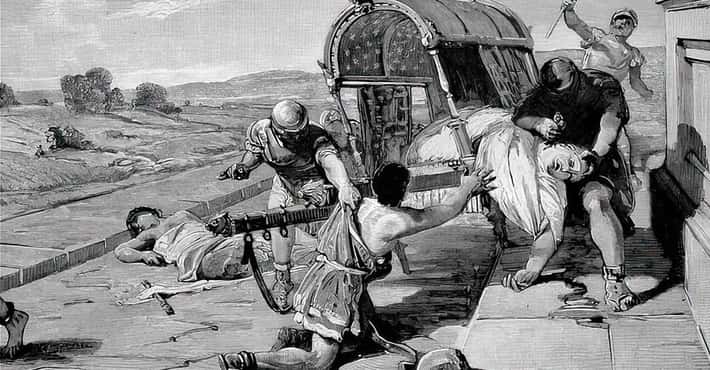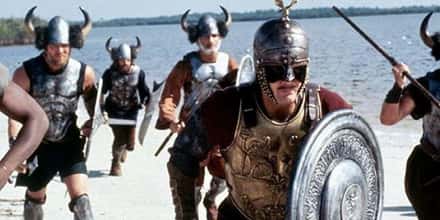Gladiator Might Be One of The Most Historically Inaccurate Movies Ever
Commodus Didn't Kill His Dad
Photo: Gladiator / Paramount PicturesOne of the most dramatic, heartbreaking moments in the film occurs within the first 35 minutes: Commodus, the troubled son and expectant heir of Emperor Marcus Aurelius, slays his father when he learns that the Emperor intends to revive the republic and appoint Maximus as Rome's protector. The chilling moment succinctly communicates volumes about Commodus's character and volatile disposition. The only problem? The young heir never actually killed his own father.
Marcus Aurelius passed in 180 AD while leading a military campaign against northern Germanic tribes. While historians still debate what specifically caused his end – the most popular guess is the plague – he certainly did not perish at the hands of his son and heir. In fact, his health had been deteriorating for quite some time before his passing.
Lucilla Didn't Get A Happy Ending
Photo: Gladiator / Paramount PicturesGladiator frequently suggests that Lucilla – daughter of Marcus Aurelius and sister of Commodus – would make a better ruler than her brother, as she is clearly intelligent, thoughtful, and capable of taking action against wrongdoing. Although she mourns Maximus at the film's end, she is at least relieved that her son is safe from Commodus.
The life of the real Lucilla, however, was a far more dramatic story. She was married off twice to her father's political allies, even as she cultivated a mind of her own. After her brother succeeded their father as Emperor, Lucilla became concerned about his behavior and concluded that he must be overthrown.
With the help of her lover, Lucilla orchestrated an attempt to rid Rome of her brother. Unfortunately, the plot failed, and Lucilla was banished to the island of Capri, where she was later executed.
Commodus Was Even More Despicable In Real Life
Photo: Gladiator / Paramount PicturesJoaquin Phoenix portrays Commodus as a sniveling yet complex villain who is emotionally damaged and craves the love of his people. As despicable as many of his actions are in the film, the historical Commodus was actually far worse.
He was a diehard gladiator fan, had delusions of becoming a gladiator himself, and even frequently appeared in arenas. Commodus even fought in the Colosseum with wooden swords against harmless opponents and pretended to be Hercules. He even renamed Rome after himself and was also a prolific slayer of animals.
Worst of all, he would dress up disabled people as mythological creatures simply so he could slaughter them in a gladiatorial spectacle.
Marcus Aurelius Had No Intention Of Returning Rome To A Republic
Photo: Gladiator / Paramount PicturesThe film upholds Marcus Aurelius as a virtuous, model Emperor. That judgment is underscored by the fact that he wishes to return Rome to a republic, something the city hadn't been since at least 27 BC. Though it is true that Marcus Aurelius craved a simpler life, there is absolutely no evidence that he intended to reinstate a republic.
In fact, his quest for territory in the Germanic lands cultivated his public image as a warrior-emperor, and he was perhaps even more of an imperialist than his son, who ended his father's expensive northern campaigns. In addition, Aurelius training his son to become succeed him as Emperor points to his lack of intention to restore the republic.
Commodus Wasn't Slain In The Arena
Photo: Gladiator / Paramount PicturesThe climax of the film appropriately takes place in the arena – Maximus finally avenges his family and his mentor, Marcus Aurelius, by slaying Commodus. The infamous scene, however, is a complete fabrication.
Commodus's end was hardly so dramatic. Commodus made plenty of enemies over the course of his reign, and eventually his insufficiencies as a ruler – especially in contrast with his father – became clear. In 192 AD, when Marcia, his own mistress, tried to poison him.
Though Commodus managed to expel the poison, Marcia's accomplice murdered Commodus while he was taking a bath, finally ending the Emperor's vicious reign.
The Film's Roman History Is Backwards
Photo: Gladiator / Paramount PicturesThe film's ending completely distorts the history of ancient Rome. In the final few minutes, Maximus finally accomplishes Marcus Aurelius' goal: he symbolically ends the corrupt, immoral aspect of political Rome that Commodus embodies. By doing so, he transforms Rome into a republic once more.
The only problem with this ending is that the Roman republic ended in 27 BC, when Julius Caesar's great-nephew, Augustus, transformed Rome into an empire, never to be resurrected. Gladiator, which takes place roughly 150 years into the imperial period, thus charts a completely different history of Rome.
Marcus Aurelius Didn't Outlaw Gladiator Games In Rome
Photo: Gladiator / Paramount PicturesThe film version of Marcus Aurelius is somewhat historically accurate. Gladiator rightly portrays the aging Emperor as a combination philosopher-ruler. But despite Marcus Aurelius's robust moral conscience, his character isn't completely true-to-life. While the real Marcus Aurelius didn't particularly enjoy watching gladiators fight, the movie intensifies this distaste, claiming that he outlawed the games in the city of Rome, thus pushing gladiatorial companies to the provinces.
Marcus Aurelius never outlawed the games, though he did stop imperially funding them.
"Spaniards" Didn't Exist In Ancient Rome
Photo: Gladiator / Paramount PicturesMaximus is given the nickname "Spaniard" in the film, owing to the fact that he supposedly came from Roman Spain. By the 2nd century, the Iberian peninsula was indeed under Roman rule, yet Spain didn't exist in the ancient world. The Iberian peninsula was known as "Hispania" and was not the independent, unified nation of modern-day Spain.
In other words, "Spain" didn't exist in the Roman world, and neither did the term "Spaniard." The term first appears in the English language in the beginning of the 15th century.
No One In The Roman World Spoke Italian
Photo: Gladiator / Paramount PicturesIn one of the movie's most touching scenes, Maximus's young son runs to meet a group of men on horseback, thinking they must be part of his absent father's retinue. He cries out, "Mama, i soldati," which is Italian for, "Mother, the soldiers!" While moving, his use of Italian is historically inaccurate.
While a wide variety of languages was spoken across the Roman Empire, Italian was not among them. Modern Italian didn't even exist during the setting of the film. For greater historical accuracy, Maximus's son would have spoken some version of Latin or a local dialect.
Commodus Was Insanely Hot And Obsessed With Sex
Photo: Gladiator / Paramount PicturesThe film downplays one fact that nearly all historical sources agree upon: Commodus was super hot and crazy about sex. Many ancient writers were generous in their description of Commodus's attractiveness, and one even praised his "well-proportioned body, and...beautiful, manly face."
He reportedly kept hundreds of male and female concubines. In the film, Commodus spends more time mooning over his sister than taking lovers, a character decision drastically out-of-step with historical reality. The daring mistress that ultimately betrayed Commodus is also excluded from the narrative.
The Film Misnamed The Colosseum
Photo: Gladiator / Paramount PicturesMost characters in the film refers to the arena as the "Colosseum," the 21st-century name of the massive structure; however, in the ancient world, it was actually known as the "Flavian Amphitheatre." Not until the Middle Ages did people refer to the structure as the Colosseum.
Additionally, seating in the Flavian Amphitheatre was highly segregated by both social class and gender – though the film is correct in including female spectators, they would generally have been relegated to their own section in the arena.
Commodus Actually Ruled Alongside His Father
Photo: Gladiator / Paramount PicturesOne of the first conflicts in the film is between Commodus and his father, Marcus Aurelius. The film veers wildly into fiction when it depicts Marcus Aurelius intending to disinherit Commodus in order to transform Rome back into a republic. The scene occurs in 180 AD, directly previous to the Emperor's demise. Marcus Aurelius couldn't have disinherited his son in 180 AD, since Commodus had technically been his father's co-ruler since 177 AD.
There Was Never A Protector Known As Maximus
Photo: Gladiator / Paramount PicturesAt the end of the film, Maximus fulfills the last wish of Marcus Aurelius when he becomes the protector of Rome and returns the empire to a virtuous republic. However, unlike many of the other main characters in the film, Maximus never existed and isn't really based on any single historical figure.
Instead, Maximus seems to be a composite character from other cinematic depictions of the Roman world. Specifically, the inspirations for Maximus are most likely Spartacus from Spartacus (1960) and Livius from The Fall of the Roman Empire (1964).
The Film Doesn't Understand – Or Doesn't Care About – Roman Names
Photo: Gladiator / Paramount PicturesThroughout the film, the main character is simply known as "Maximus." But, in grand style, he reveals his full name to be "Maximus Decimus Meridius." True, elite Romans often had three names: the generic first name, the individual's family name, and an added name. If "Maximus Decimus Meridius" was the character's name, then he most likely would not have gone by "Maximus."
Romans tended to go by their second or third names, since they were less common. For example, Commodus's full name was Lucius Aurelius Commodus. Likewise, the famous Gaius Julius Caesar went by "Caesar" rather than the common "Gaius."


